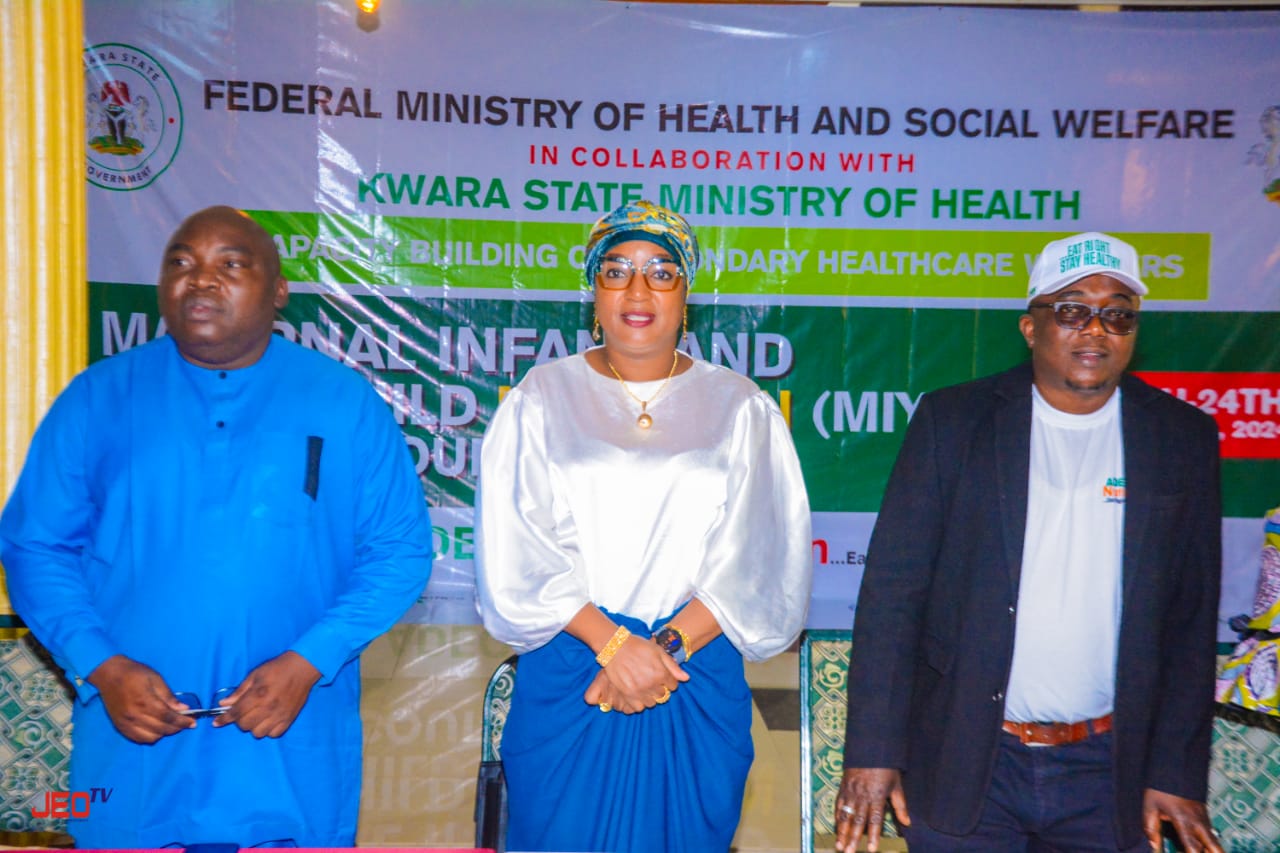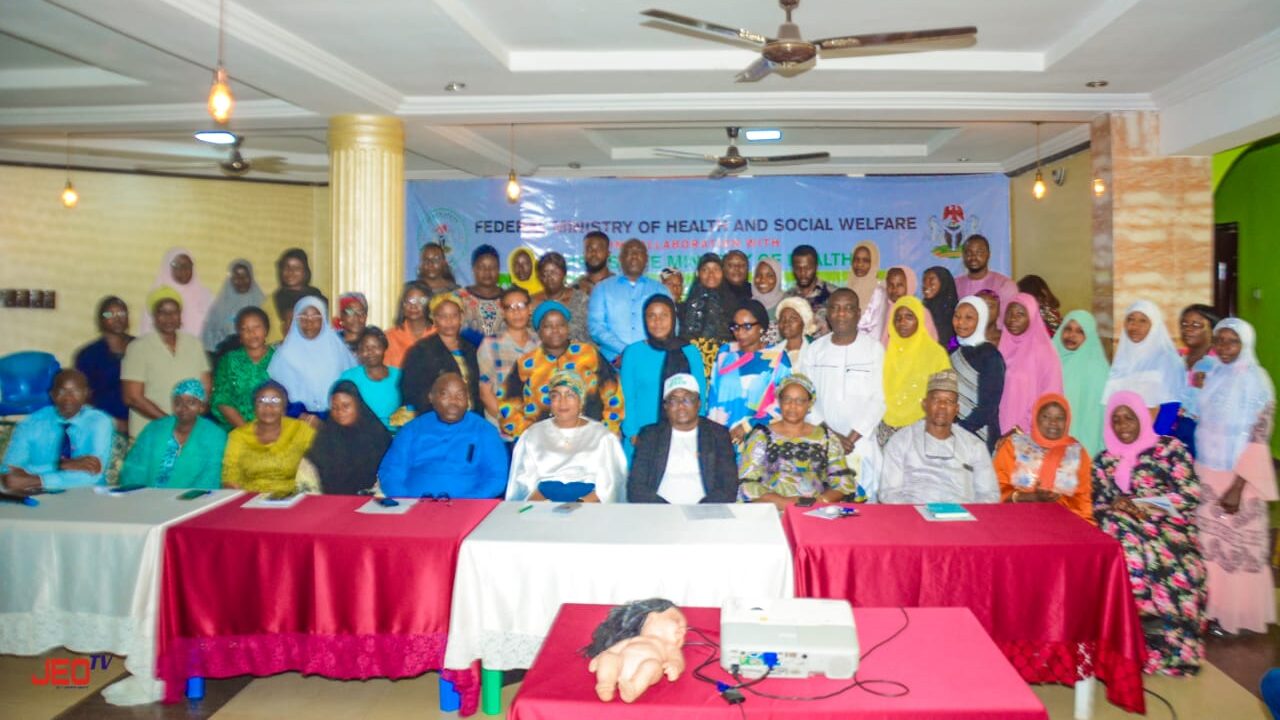
Kwara Begins Capacity Building For Nutrition Officers To Curb Maternal, Child Mortality Rate
A seven day capacity building for nutrition officers across secondary healthcare facilities in Kwara State, has begun in Ilorin.
The training which is at the instance of the Federal Ministry of Health and Social Welfare in collaboration with the State Ministry of Health, is aimed at improving nutrition knowledge and skills of participants, to curb maternal and child mortality rate, incidences of malnutrition and stunted growth.
In an address at the opening ceremony, the Kwara State Commissioner for Health, Dr Amina Ahmed El-Imam stated that with healthy nutrition, mothers and their babies would build immunity against killer diseases.

Dr El-Imam urged participants to support mothers to give exclusive breastfeeding to their babies in the first six months without water or herbal concoctions.
She pointed out that the Kwara State Government, under Governor AbdulRahman Abdulrazaq, has invested heavily in the healthcare sector, hence participants needed to play their role effectively for positive outcome.
“What you are learning, is what you are going to cascade down in our facilities. And what you are learning should change, must change, the lives of women and children going forward.”

Earlier, the Desk Officer, Baby Friendly Initiative, Federal Ministry of Health, Mrs Adenike Bayode, emphasized the need for health workers to counsel mothers on proper diet for themselves and their babies.
In an address of welcome, the State Director of Public Health, Dr Oluwatosin Fakayode who stated that there had been remarkable reduction in under five mortality rate in the State from the initial 74,000 to 14,000, explained that the Maternal, Infant and Young Child Nutrition Training, MIYCN, would further curb infant mortality with commitment by the secondary healthcare workers.
“We still have a long way to go despite we have done very well. We still know that nutritional indices still remains very poor. Of course, a lot of factors has to do with this. Food security is there, the issue of economic issues around the country is there and the issues of climate change is affecting everywhere in health. And that means we must not rest on our oars.”

The State Project Coordinator for Accelerating Nutrition Results in Nigeria, ANRiN, Dr Habeeb Lawal advised families to have gardens in their homes to reduce expenses on vegetables and other food items.
“Balanced diet means a meal that has minimum of five, out of the eight classes of food. A food that is made from different colors, – white, that is the rice, yams; the brown, that is the beans; the red are the tomatoes, they are very rich in vitamins.”
The training is being attended by one hundred and twenty secondary healthcare workers from the sixteen local government areas of Kwara State, including the military, public and private healthcare facilities.
By Rasheedat Iliyas

